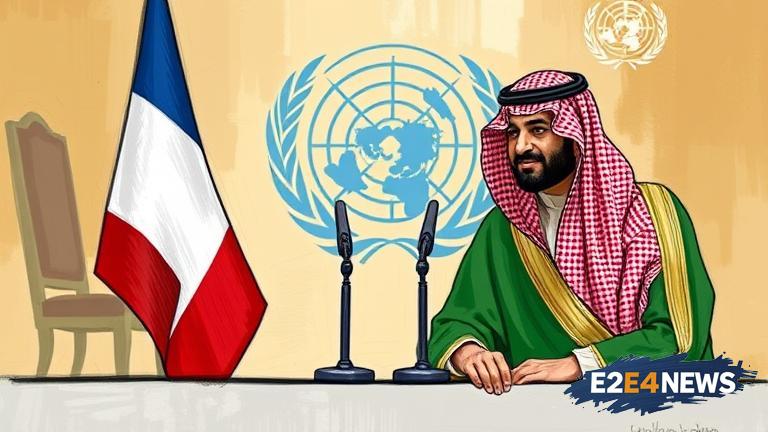The United Nations has set new dates for a conference focused on Palestinian statehood, with France and Saudi Arabia serving as co-chairs. This move is seen as an effort to reinvigorate the stagnant peace process between Israelis and Palestinians. The conference, initially planned for earlier this year, has been rescheduled due to various logistical and diplomatic challenges. France and Saudi Arabia’s co-chairmanship reflects the international community’s growing concern over the lack of progress in resolving the Israeli-Palestinian conflict. The conference aims to bring together representatives from various countries and international organizations to discuss the feasibility of a two-state solution. This solution, which has been the cornerstone of peace negotiations for decades, envisions the establishment of an independent Palestinian state alongside the State of Israel. The new dates for the conference are expected to be announced shortly, with the event likely to take place in the fall. The decision to co-chair the conference with Saudi Arabia marks a significant development, given the country’s influence in the Arab world and its potential to mobilize support for the Palestinian cause. France, on the other hand, has historically been a strong advocate for Palestinian rights and has played a pivotal role in European Union policies regarding the Middle East peace process. The involvement of these two countries is expected to lend credibility and momentum to the conference. Despite the challenges and setbacks that have characterized the peace process, the international community remains committed to finding a lasting solution to the conflict. The conference will provide a platform for delegates to discuss key issues such as borders, security, Jerusalem’s status, and the right of return for Palestinian refugees. These discussions are crucial for understanding the complexities of the conflict and for exploring potential avenues for compromise. The United Nations has emphasized the importance of a negotiated settlement that meets the legitimate aspirations of both Israelis and Palestinians. While there are no guarantees of success, the rescheduling of the conference with France and Saudi Arabia at the helm offers a glimmer of hope for renewed dialogue and cooperation. The conference’s outcome will be closely watched by the international community, with many hoping that it will mark a turning point in the long-standing conflict. In the lead-up to the conference, there are expectations for increased diplomatic activity, including bilateral meetings between key stakeholders and multilateral discussions facilitated by the co-chairs. The success of the conference will depend on the willingness of all parties to engage in good faith negotiations and to make difficult compromises. As the conference approaches, there will be a heightened focus on the role of the international community in supporting a peaceful resolution to the conflict. Ultimately, the establishment of a Palestinian state, as envisioned by the conference, would require significant political will and cooperation from all sides involved.
